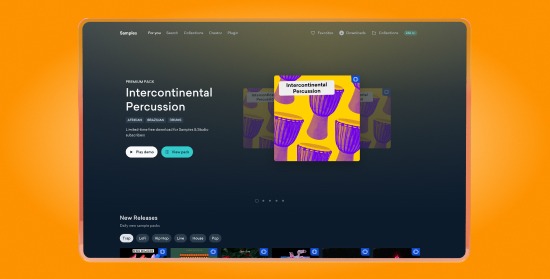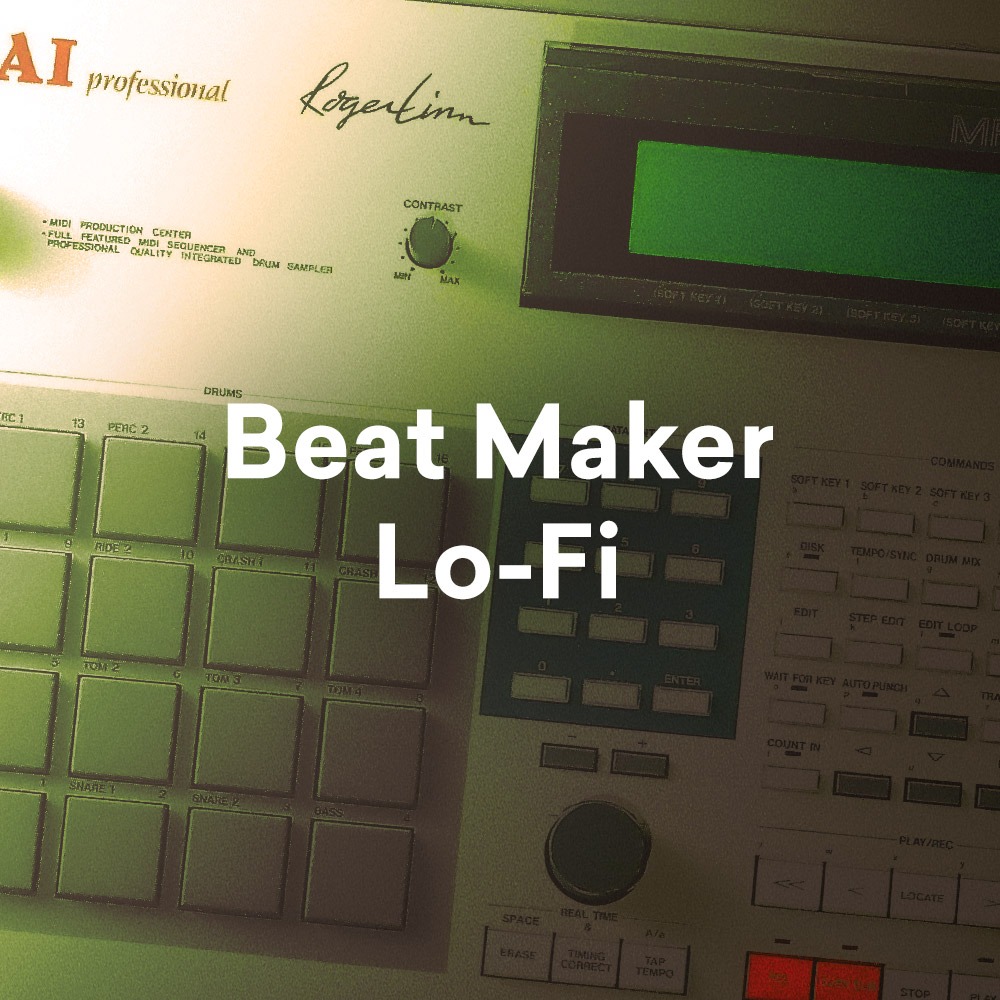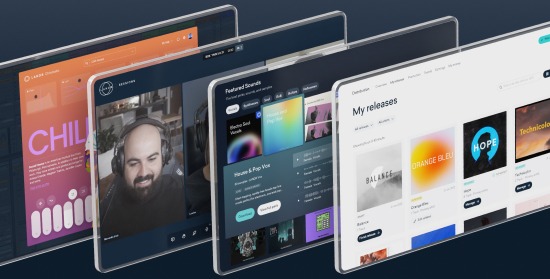Beat Block: Why it Happens and 11 Ways to Overcome It
Creativity is often compared to a water well, sometimes it overflows but sometimes it dries up.
The same is true in beat making. When beatmakers lose inspiration and struggle to come up with something new it’s called beat block.
Beat making is supposed to be fun, so when you find yourself hunched over your DAW without any inspiration coming to mind, it can be demoralizing.
You can’t think of a creative way to write something fresh, so you don’t write at all–a vicious cycle starts to form.
The good news is that beat block is totally… beatable.
Personally, I think beat block happens when your mind needs some time to recalibrate before coming back stronger than ever.
So, if you’re stuck in your home studio seeking inspiration, here’s a few tips to get over beat block and get you excited about beat making again.
1. Clean up your studio space
I often find that my space is a reflection of where I’m at mentally.
If my home or studio is messy and disorganized, chances are strong my mental state is too.
I’ll usually realize this and take a moment to do some cleaning. That means putting away cables, dusting equipment, and putting away anything that I’m not working with.
Having a clean studio space always makes me feel like I have a blank canvas to work with. It helps me clear my mind.
I often find that my space is a reflection of where I’m at mentally.
2. You’re a trap producer? Make some ambient noise
Have you been sticking to one genre in particular lately?
Perhaps you’re known for always trap beats, or lo-fi hip hop.
Thing is, you might have beat block because you’re stuck in a rut.
Listening to a diverse range of musical genres and exploring them in your own productions is a great way to learn new things and connect the dots between different kinds of music.
If you usually make hip hop, take an afternoon to dive into minimal techno and make a techno track.
If you usually make hip hop, take an afternoon to dive into minimal techno and make a techno track.
Or if you’re into EDM production, make an ambient noise track.
Learning about other genres always helps with bringing new ideas into your personal area of expertise.
Of course, if you aren’t sure how to make a track in another genre, there’s always plenty of tutorials and help on YouTube!
3. Build a loop with Creator on LANDR Samples
If making beats is your thing, you really need to try out Creator on LANDR Samples.
It’s a beat-making tool that makes it easy to sketch out your ideas and hear how loops sound together before downloading samples.
Just browse any of the 1000s of loops on LANDR Samples and up to eight loops to Creator.
You can easily change the key and BPM of any loop you want to fit in with the rest of your track too.
This video shows how LXGEND used it to make an entire track!
4.Pick up and play a real instrument
DAWs, samplers, and drum machines are great, but there’s something unique about picking up a guitar and playing it.
There’s nothing to plug in and no menu diving. You just pick it up and play it!
There’s nothing to plug in and no menu diving. You just pick it up and play it!
If you’re into music production, you’re probably grounded in some type of musical instrument.
Don’t be afraid to go back to your roots!
Tinkle the ivories, learn a sweet drum part, get a new guitar trick under your belt.
It’s useful for learning more about chords, melodies, rhythm and harmony.
Plus, if you write something cool you can always record it and sample it!
5. Pick out a random starter sample
Sometimes one sample is enough to inspire an entire song.
But finding that sample can be really tough!
Sometimes one sample is enough to inspire an entire song. But finding that sample can be really tough!
That’s why curated sample packs and libraries of royalty-free samples are always a useful tool for inspiring creativity.
Don’t overthink it, just pick a sample that catches your ear, download it, and chop it up in your sampler.
6. Arrange your beat
Making a complete loop is always a great start for your beat, but without a good arrangement, your beat will feel one dimensional.
Instead of making new loops, go back to an unfinished beat and make a conscious effort to arrange it.
Add a drum break down, synth buildup, and create noticeably different A and B sections.
Or flip the entire beat halfway through like Kendrick did in his track DNA.
Whenever you have a complete loop finished, you have the foundation for your arrangement.
Whenever you have a complete loop finished, you have the foundation for your arrangement.
All you have to do is take some time to arrange it into a finished track.
7. Learn some new chord progressions
Sometimes beat block happens because you feel like you don’t have anywhere new to explore musically.
Using the same chord progressions, motifs, and harmonies can be tiring.
The only way to get around this is to learn more about music theory.
Specifically, you might need to learn more about scales, chord voicings, extensions, and progressions.
Fortunately, there are TONS of free resources out there for that!
Check out this free MIDI pack with 10 common chord progressions.
8. Get out of the DAW with hardware
Staring at a computer screen often feels like work. Especially if you work a day job in an office.
Coming home to sit in front of another computer, even if it’s your daw, can be a huge downer and take away the fun of working on music.
One way to get rid of this is to incorporate hardware into your workflow.
Whether it be a MIDI controller that turns your DAW into a hybrid production station, or a piece of hardware that exists completely outside of your DAW.
There’s so many inspiring hardware options that don’t cost too much money and can take your music production to new heights.
9. Watch a video of your favorite producer
There’s so many great producers out there to take inspiration from, and many of them create content for their followers to watch.
Watching how big-name producers work in their studio is always a useful way to get inspired by new workflows, production techniques, and creative prompts.
Take a moment to dive into a YouTube hole and find some inspiring producer tips.
Take a moment to dive into a YouTube hole and find some inspiring producer tips.
You’ll definitely learn something new, and watching others create tracks is always a great to inspire yourself to dive in.
10. Change your environment
Spending hours in the same studio space can be draining and suck the inspiration from your work.
Making changes to your studio environment can help with getting you out of your comfort zone.
Making changes to your studio environment can help with getting you out of your comfort zone.
It’s as simple as changing the art on the walls, playing with lighting, or moving to a new space entirely.
You don’t have to spend money on an entirely new studio either.
Just take your laptop or sampler into the kitchen or for a trip to the park and you’ll see what new scenery does to inspire your music.
11. Collaborate with someone new
Bringing a new perspective into your workflow is always a great way to freshen up your beats.
So team up with someone who’s more experienced in a different area of music than you are.
For example, if you are an expert in rhythm, you might want someone who has their chord voicings mastered.
That way everyone benefits.
You could send the stems for a track you’re stuck on, or create something entirely new together.
It’s always best to reach out to someone you already know, or provide something of value if you’re trying to collaborate with someone who’s more established than you.
You can always browse through online market places where beatmakers and producers are open to sharing their knowledge and expertise for hire.
A beat a day
Beat block sucks.
No one wants to lose their creative drive, and getting stuck in a rut will drag you down.
The only way to get back to making great tracks is to work on your creative process and keep finding new ways to get inspired.
If you keep working at it I’m sure you’ll find what you need to dive back in!
Gear guides, tips, tutorials, inspiration and more—delivered weekly.
Keep up with the LANDR Blog.
Latest posts


